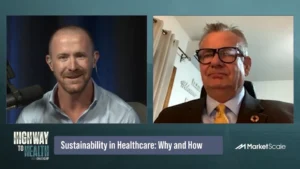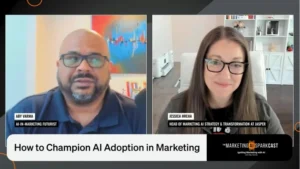When Law Enforcement Provides Victim Support, That’s Where the Healing Starts
It may seem like a small gesture, but when law enforcement provides victim support, it can help reduce trauma and the overall impact of a crime. An exceptional experience can go a long way in the healing process.
At the recent Global Security Exchange (GSX) 2023, a standout session titled “When the Patient Becomes the Predator: A Targeted Violence Case Study” shed light on the escalating dangers within the healthcare profession. According to 2018 data from the Bureau of Labor Statistics, healthcare workers face workplace violence-related injuries at a staggering 10.4 per 10,000 full-time workers, dwarfing the private sector’s rate of 1.7. Alarmingly, in 2021, investigators uncovered a chilling plot where a patient had intentions to assassinate a physician using a handgun.
This session dissected the parallel experiences of the investigators and the victim, highlighting the emotional toll, frustrations, and glaring gaps in the current system. With experts like Brian Uridge and Subinoy Das leading the discussion, attendees gained invaluable insights into the systemic deficiencies within the criminal justice system and the urgent need for multidisciplinary threat assessment teams.
Uridge, Deputy Director of Public Safety for The University of Michigan, spoke about the issues he and Das raised during the discussion and why, when law enforcement provides exceptional victim support, that rewarding experience makes a difference.
Brian’s Thoughts
We know through research that seventy-three percent of all violence in any workplace occurs in a healthcare setting. And that right now, fifty percent of physicians and seventy percent of nurses report being assaulted on the job.
The Silent Crisis: Underreported Assaults in Healthcare
So, the title of it is when the patient becomes the predator. Yeah. It’s an actual case study where a physician was targeted for harm by one of their patients because they were dissatisfied with their treatment.
And what it ended up being was a several-month ordeal of the investigation process than the impact on the victim.
So that’s really the synopsis of the case.
Relationship-Based Security: A New Approach
The goal of the presentation is to show the importance of how to create an exceptional experience for your victims, whether you’re in law enforcement or security, because this was a unique case in which no one would actually manage the investigation.
We took a case where we had very little involvement, And we supported the victim and the physician during the criminal investigation and follow-up. We made sure his emotional health was supported. We gave him safety planning. And the whole focus is that exceptional experience, that customer service, that is so critical to what we do in law enforcement or public safety.
We know that we know through research that seventy three percent of all violence in any workplace occurs in a healthcare setting. And that right now, fifty percent of physicians and seventy percent of nurses report actually being assaulted on the job.
But even worse, we know that only twenty-six percent of physicians who are assaulted and thirty percent of nurses ever reported it in the first place because we have a culture where it’s accepted. Now, it’s been exacerbated by COVID. We’ve seen a massive increase. So, really, this case study targets what we’re seeing throughout health care in the entire nation.
Three Pillars of Modern Security at GSX
In any industry in security, we know that true security is about reducing risks and reducing anxiety.
We know that people are more concerned with their anxiety than actual real risk, so the focus of this and how it applies everywhere is that if we change the way that we interact and engage with our stakeholders, we can significantly reduce anxiety through exceptional experience, through victim follow-up, through customer service, what that does is that builds that relationship. What we like to call it at U of M is relationship-based security or community-focused security. Those two things create a nexus or a relationship between the stakeholder and the security officer, which reduces both those risk and anxiety issues.
So, we use three pillars of security: building trust, creating scenario-based training, and using advanced technology. And that’s what’s great about the GSX is that this involves everything here: training, building platforms, engaging security, and then obviously state-of-the-art technology.
Challenges and Solutions in Leadership and Engagement
And so, the biggest challenge that you have is that leadership piece is how can you motivate and have your staff understand the key part of security is that face to face, follow-up, it’s that interaction, It’s what we like to call nontraditional security, meaning up, and then meeting people and engaging with them. We know that seventy-two percent of people make their health care decisions based on the recommendation of a family or a friend, not based on if it’s the best doctor for them. We know that if we can actually interact with them and reduce their anxiety, or more apt to have people have a better experience within the hospital.
Article by James Kent






